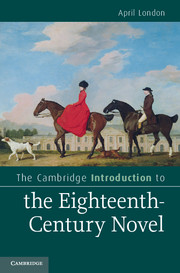Part I - Secrets and singularity
Published online by Cambridge University Press: 05 June 2012
Summary
Introduction
Questions of identity – its nature, expression, ethical, economic, and political correlatives, as well as its individual and social formations – fascinated eighteenth-century writers. Daniel Defoe approaches the exploration of such questions in his novels by disabling the customary markers of private and public being, among them, names, family status, religious affiliation, and place of birth. In certain novels, including Capt. Singleton (1720), Moll Flanders (1721) and Col. Jacque (1723), our knowledge of these remains almost entirely incomplete; in others, like Robinson Crusoe (1719) and The Fortunate Mistress or Roxana (1724), limited information is advanced in the opening pages, but then just as swiftly undermined or made irrelevant by changing circumstances. In later eighteenth-century fiction, the destabilizing effects of such patterns of concealment and disclosure are often made preliminary to the consolidation of personal and social knowledge. But in Defoe’s novels, as Chapter 1 suggests, two narrative elements work to sustain the contingency of identity: first, the focus on secrets, and second, the depiction of the protagonists’ singularity, paradoxically defined through their connections to character doubles. Most often developed through plots that set individual freedoms against a secular domain of financial necessity and a spiritual one of providential order, this unstable self characteristically achieves only partial resolution, leaving unsettled the ancillary relation of the private to the social.
- Type
- Chapter
- Information
- Publisher: Cambridge University PressPrint publication year: 2012



